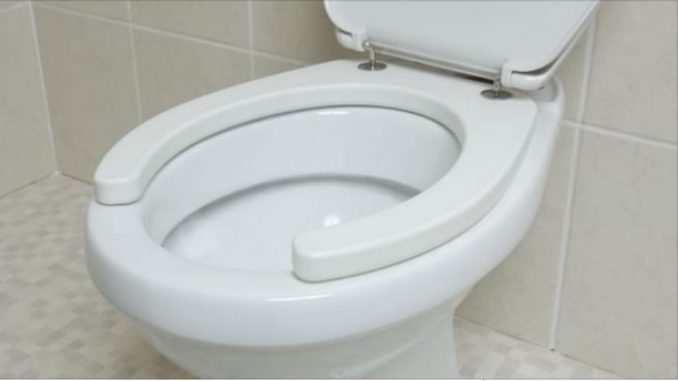
In recent times, there has been concern over reports of a lady who was said to have died from a snake bite when she was using the toilet in her apartment leading to many asking how that could be possible.
Indeed, snakes can get into toilet bowls through the connecting pipes and pits outside the house or get into the house, and then crawl up and, or fall into the toilet bowls after being in the house
To understand how entry through pipes and connecting pits happens, one can first look at the structure of the toilet bowl and how it connects to external features of the solid waste system of a building
A toilet bowl usually has three openings.
The first and biggest opening is the rim or top of the bowl; it is the part through which wastes from humans (pee and poo) are released in the toilet bowl. Snakes can get into the toilet bowl if they climb over the rim from the toilet floor below, or from an open or broken window above. They may also fall into it from a height above the rim e.g. open or broken ceiling, or the top of lockers and stacks around
The second one is a small opening located just behind and very close to the top of the toilet bowl. This hole carries the small pipe that brings in the flushing spray into the toilet bowl from the tank above the toilet bowl that holds the flush water. Snakes can only get into this hole through the tank but this only happens if the cover of the tank is broken, not sitting properly or has been deliberately removed and the flush siphon is not in place. The flush siphon usually covers the top of this pipe from inside the tank.
The third and last opening is a 100mm (four inches) wide round opening on the back of the toilet, it opens directly into the big pipes that connect the building to the underground pits and tanks outside the building
Most concealed reptiles found in the toilet bowl usually get into the toilet bowl using this last opening
How?
The pipe links the toilet to an inspection chamber, a box-like structure just outside the house, usually very close to the wall of the toilet, which in turn has pipes that link to the septic tank (or, and, soak-away pit,) and a vent pipe, that allows foul air to escape from the chamber and the septic tank/soak-away pit.
A snake can get into an opening on the connecting pipes, the inspection chamber, septic tank, soak-away pit (like a big crack on the cover slab) and conveniently make its way into the pipe that links the toilet bowl to these structures, then up, into the house.
The vent pipe is usually the weakest point when it is not properly covered or its cover fall off and is left unattended
Thus, snakes get into toilets
Directly go into open or broken pipes that link the toilet to external installations, or
Find breaks and openings of the external waste pits (inspection chambers, septic tank or soak-away pits) and find their way into the pipes that connect these pits to the house
Make their way into the house and find and climb into the toilet bowl
How can one stay safe?
Do not visit the toilet without a lamp
Always inspect the toilet bowl and its surroundings before use
Do not use the toilet floor as packing space. Keep it tidy such that it is easy to see at once whether it is clean and clear, or occupied by foreign bodies.
Inspect vent pipes, soak-away pits and inspection chambers, ceilings, roofs, walls, windows periodically for holes, breaks and loosed coverings. Repair this as soon as they are noticed.
Hire the right people to build, maintain or clean your home or shelter.
Allow good and clear space between your building and surrounding structures such as fences and trees from which snakes can get into buildings
Treat the spaces above the ceiling and below the building with snake repellents and other fumigants periodically
Take care of your house so that it will take care of you.
Utuk is a project architect based in Port Harcourt and graduate member of the Nigeria Institute of Management, Rumola Chapter.
END

Be the first to comment